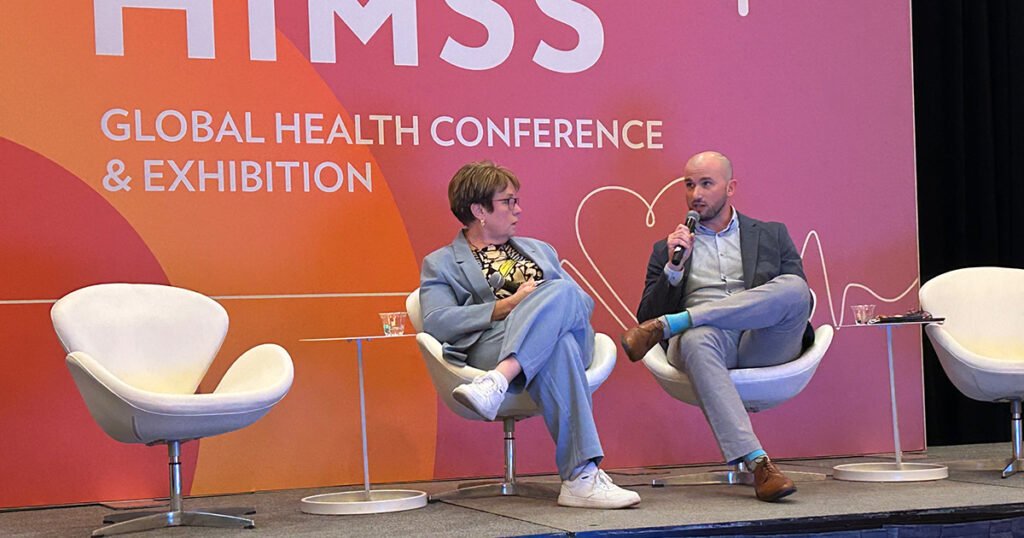Enhancing Change Management in Healthcare Organizations
Healthcare organizations are constantly striving to improve care delivery processes and enhance the overall patient experience. At the forefront of this transformation are individuals like Franco Cardillo, the executive director of digital strategy and operations at the Medical University of South Carolina (MUSC). Cardillo believes that effective communication and collaboration among all stakeholders, including clinical and technology teams, are essential for successful change management within healthcare organizations.
As MUSC embarks on various IT and innovation projects, Cardillo emphasizes the importance of ensuring that all departments are aligned and working towards a common goal. He highlights the need for different tools and services to support the patient journey seamlessly, without creating unnecessary barriers for care team members.
Crystal Broj, the health system chief digital transformation officer at MUSC, identifies three key areas of focus for effective change management:
Managing IT Resources
Broj acknowledges the challenges of reconciling different project management approaches, particularly when integrating new technologies into existing EHR systems. She emphasizes the need for IT teams to adapt to more agile methodologies to support the implementation of digital tools effectively.
Process Improvement
Broj stresses the importance of iterative development and continuous improvement when deploying new technologies within healthcare organizations. She emphasizes the need for clear communication and feedback mechanisms to ensure that end-users understand and can effectively utilize new tools.
Workflow Efficiencies
Broj highlights the significance of aligning new technologies with existing workflows to drive operational efficiencies. She emphasizes the importance of gathering feedback from both patients and staff to optimize processes and enhance overall efficiency within the organization.
Cardillo adds a crucial insight, stating that identifying pain points within existing processes is essential before implementing new solutions. He cautions against replacing inefficient processes with digital tools without addressing underlying issues.
Overall, effective change management in healthcare organizations requires a collaborative and iterative approach, with a focus on communication, process improvement, and workflow efficiencies. By prioritizing these areas, organizations like MUSC can drive meaningful transformation and enhance the overall quality of care delivery for patients.
The Importance of Mindfulness in Daily Life
In today’s fast-paced world, it can be easy to get caught up in the hustle and bustle of everyday life. From work deadlines to family responsibilities, it’s no wonder that stress and anxiety are common experiences for many people. However, there is a simple yet powerful tool that can help alleviate these feelings and bring more peace and clarity to our lives: mindfulness.
Mindfulness is the practice of being fully present in the moment, without judgment or attachment to thoughts or emotions. It involves paying attention to our thoughts, feelings, and sensations as they arise, and accepting them without trying to change or suppress them. By cultivating mindfulness, we can learn to respond to life’s challenges with greater awareness and compassion, rather than reacting impulsively or out of habit.
One of the key benefits of mindfulness is its ability to reduce stress and anxiety. When we are mindful, we are able to notice when our minds are wandering or caught up in negative thoughts, and gently bring our attention back to the present moment. This can help break the cycle of rumination and worry that often accompanies stress, allowing us to approach difficult situations with a calmer and more balanced perspective.
In addition to reducing stress, mindfulness can also improve our overall well-being. Research has shown that practicing mindfulness can lead to lower levels of depression, improved focus and concentration, and better relationships with others. By learning to be more present and attentive in our daily lives, we can cultivate a greater sense of gratitude and appreciation for the people and experiences around us.
Furthermore, mindfulness can be a valuable tool for personal growth and self-discovery. By observing our thoughts and emotions without judgment, we can gain insight into our patterns of behavior and reactions to various situations. This self-awareness can help us make more conscious choices in our lives, rather than being driven by unconscious habits or conditioning.
There are many ways to incorporate mindfulness into our daily lives. Meditation is a popular practice that involves sitting quietly and observing the breath or body sensations. Mindful walking, eating, and even cleaning can also be opportunities to bring greater awareness to our actions and experiences. By making mindfulness a regular part of our routine, we can gradually cultivate a more peaceful and centered way of being.
In conclusion, mindfulness is a powerful tool that can help us navigate the challenges and uncertainties of life with greater ease and clarity. By learning to be more present and attentive in each moment, we can reduce stress, improve our well-being, and cultivate a deeper sense of self-awareness. So why not give mindfulness a try and see how it can positively impact your daily life?


